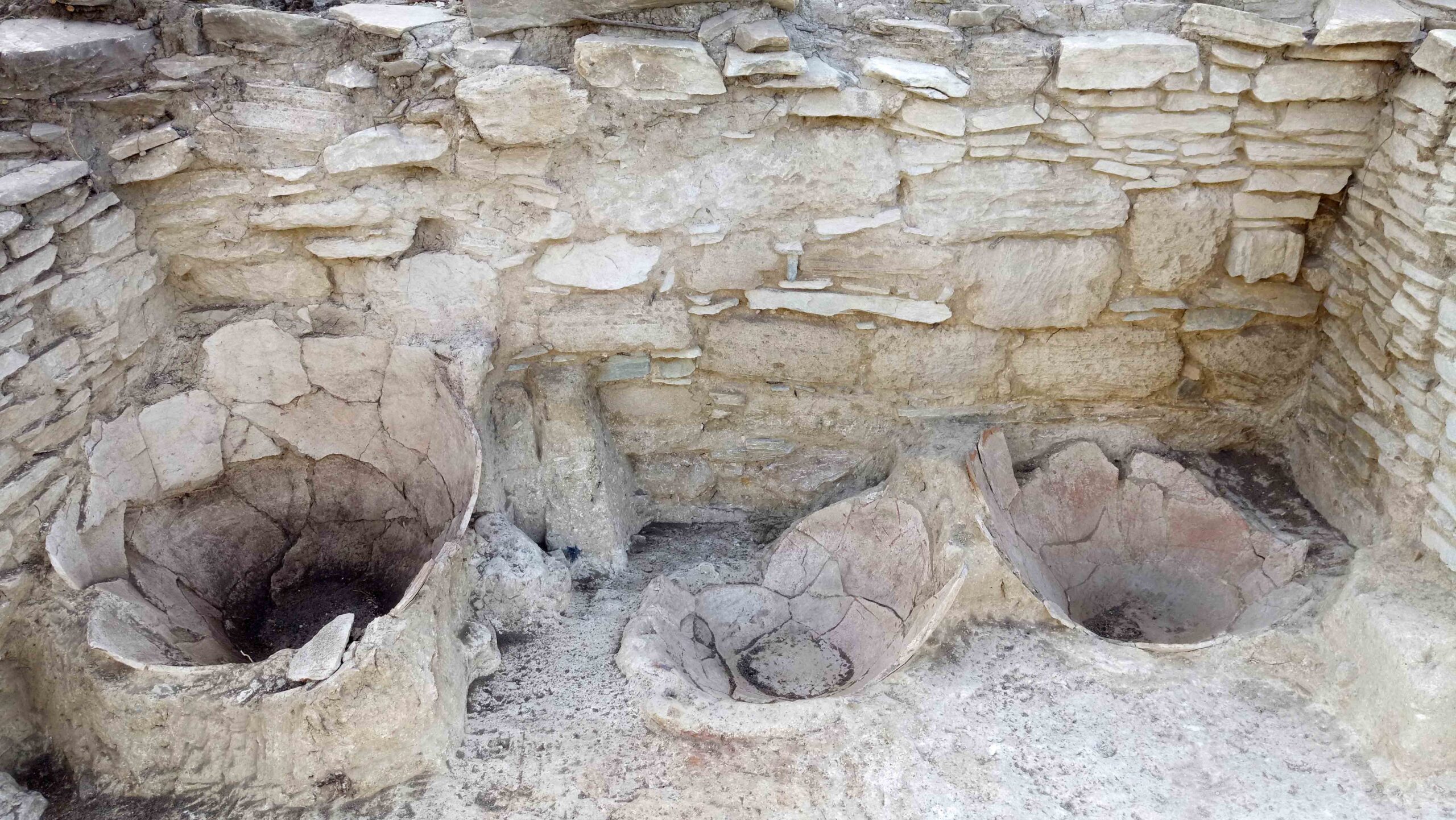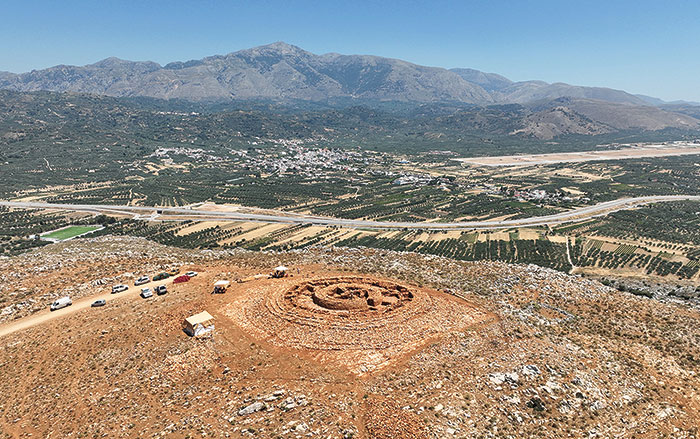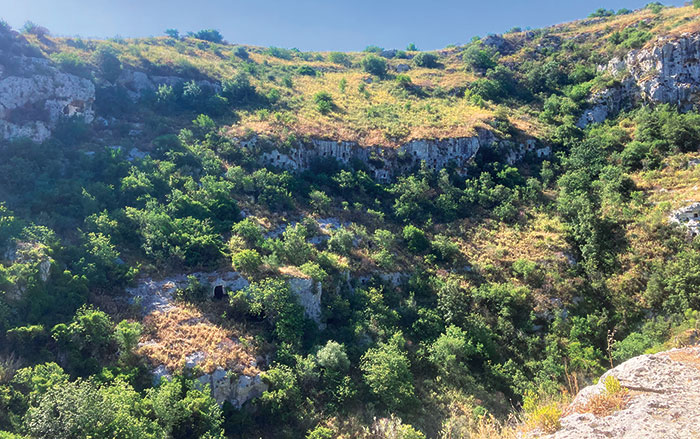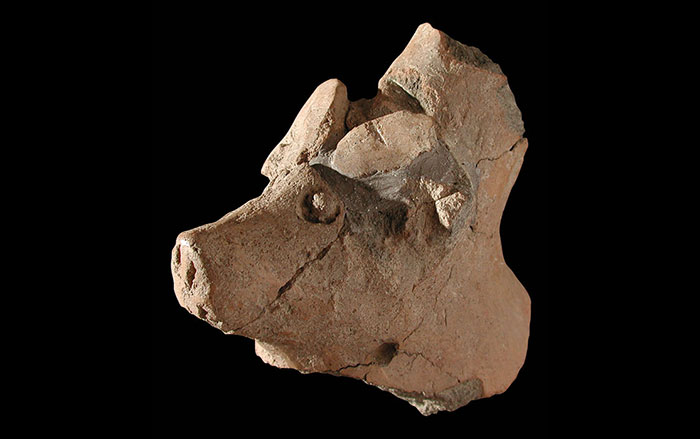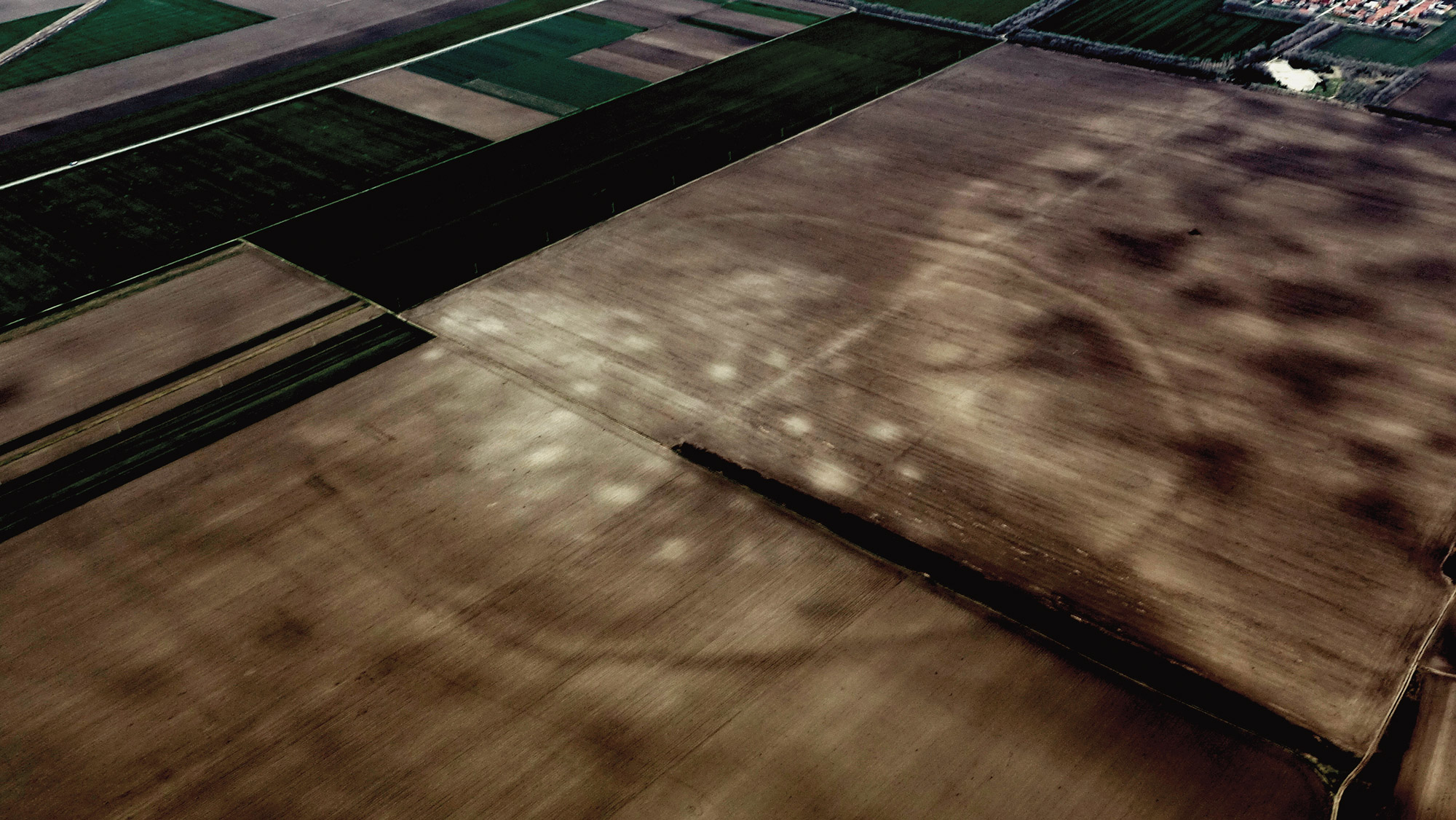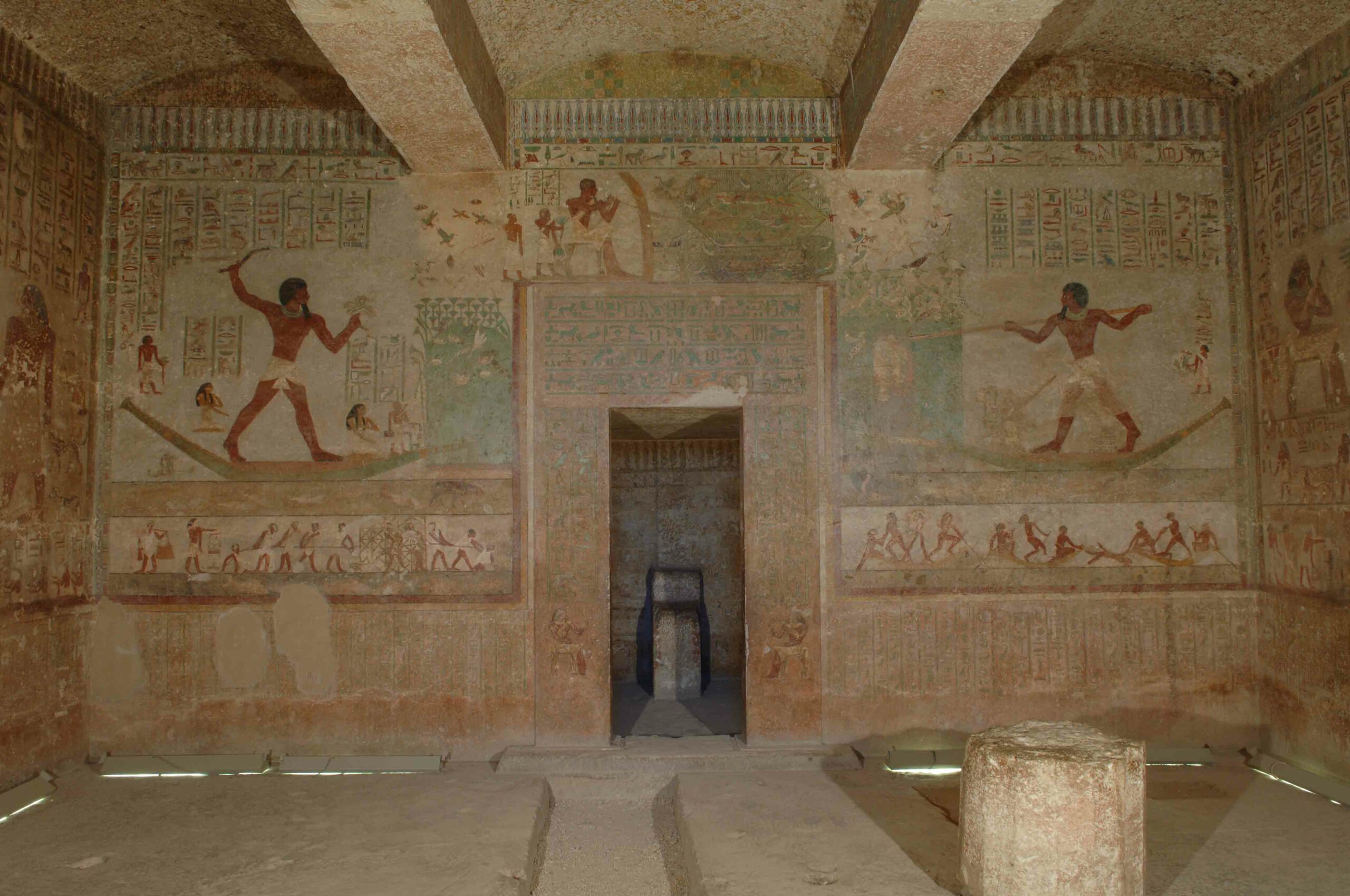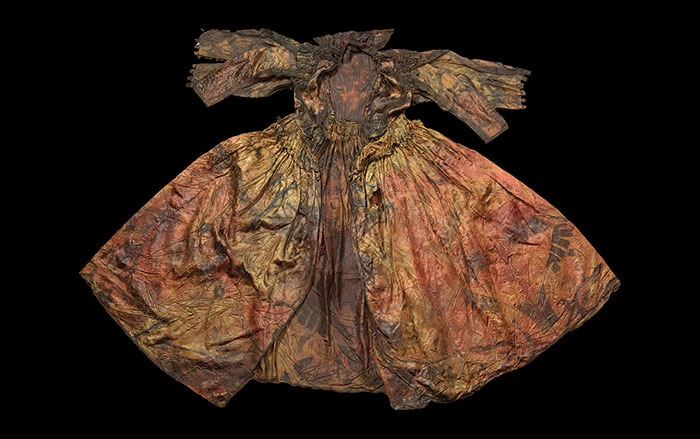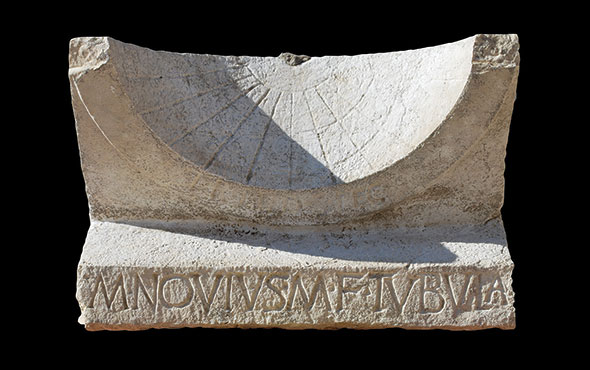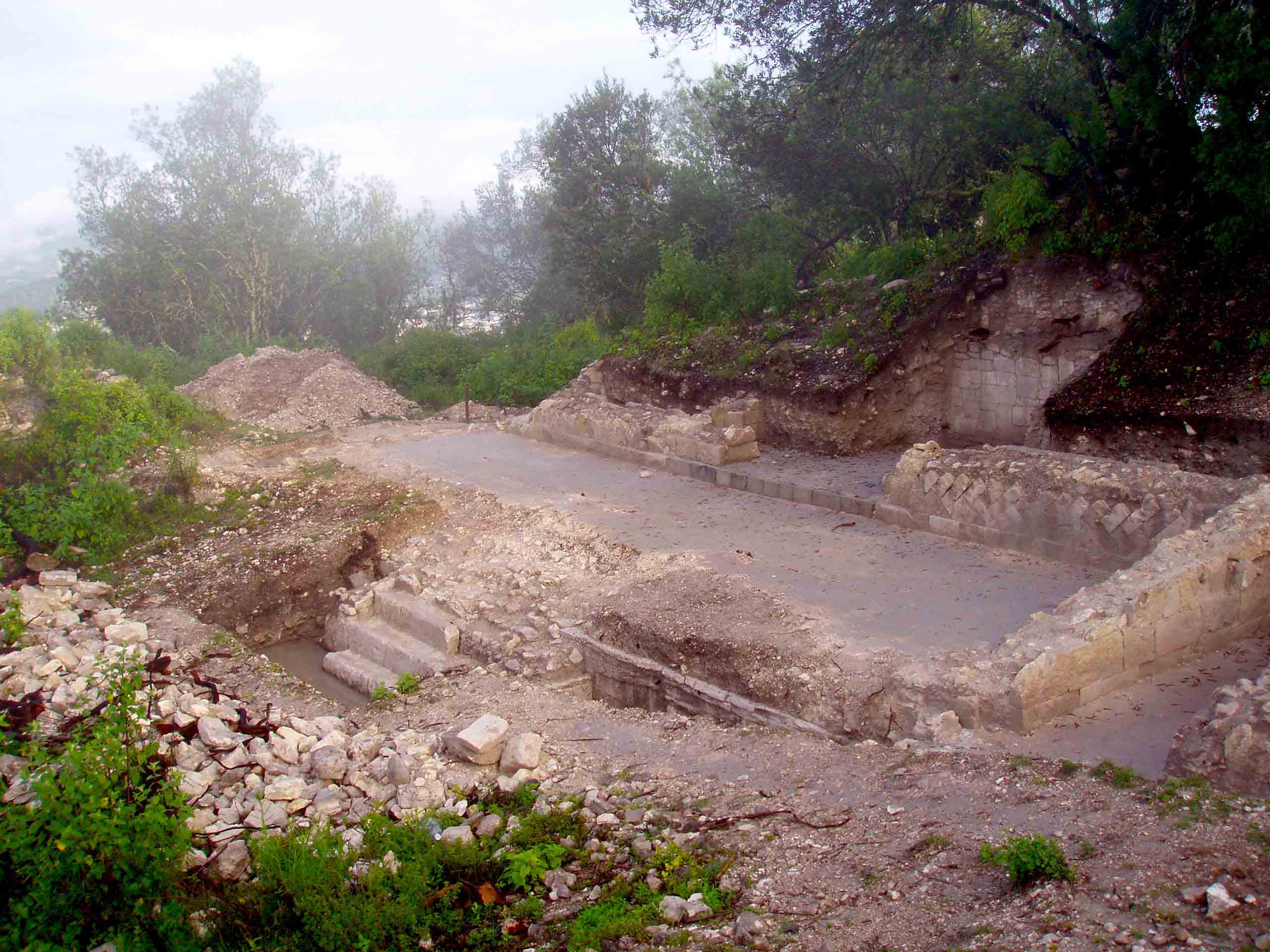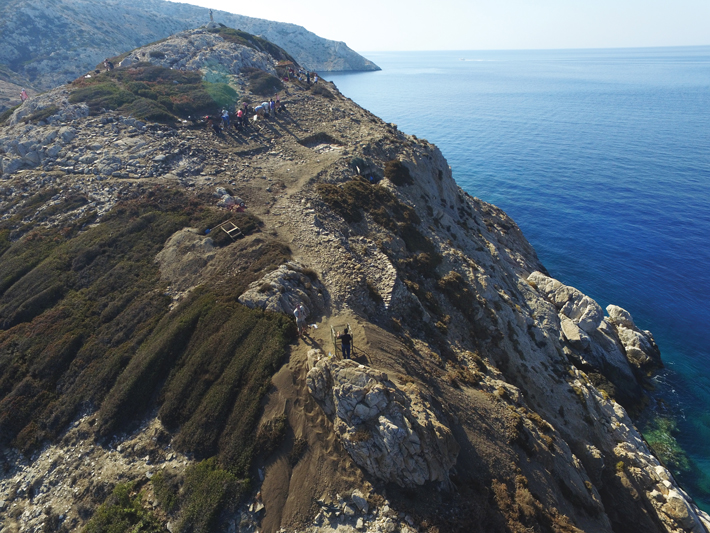
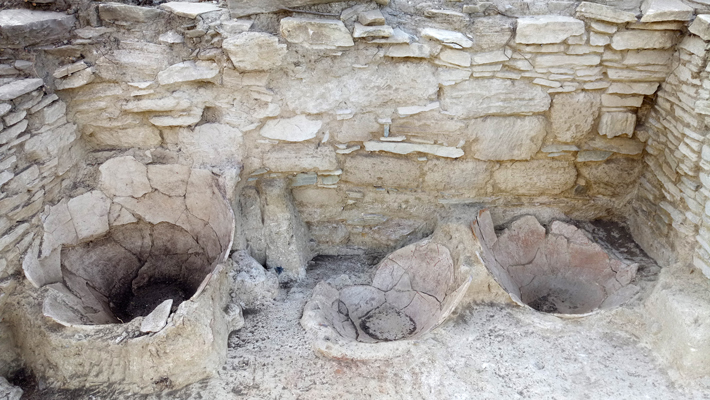
In the third millennium B.C., a sanctuary on the island of Keros in the Aegean Sea was an important ritual center and destination for Bronze Age pilgrims. Today it is renowned for the discovery of Cycladic figurines, abstract marble figures whose dramatic shapes influenced artists in the early twentieth century. Now, new excavations on a promontory that was once connected to the island by a narrow causeway, before the sea level rose, have uncovered the remains of an unusually sophisticated settlement that flourished at the same time as the sanctuary. A team led by University of Cambridge archaeologists Michael Boyd and Colin Renfrew has shown that the island’s inhabitants built a series of terrace walls that enhanced the promontory’s natural pyramid-like shape. An estimated 1,000 tons of white stone covered the walls and would have made the site dazzling in the Aegean sunlight. The team also discovered a network of drainage tunnels, as well as copious evidence of metalworking. “What we are seeing here are the beginnings of urbanization,” says Boyd, who notes that the settlement probably grew to such an extent that it surpassed the nearby sanctuary in importance.


